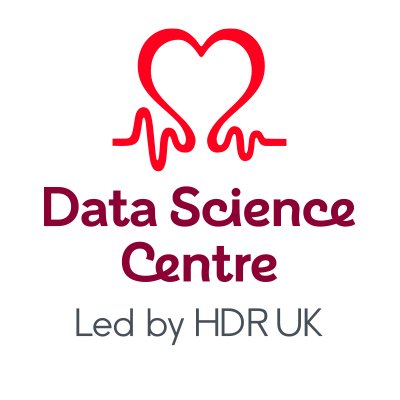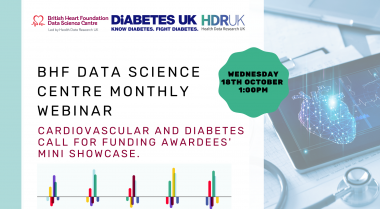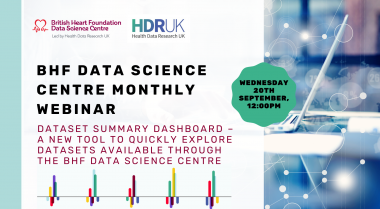500,000 missed out on blood pressure lowering drugs during pandemic
19 January 2023
Researchers warn of additional heart attacks and strokes adding to a healthcare system already under pressure.
Nearly half a million people missed out on starting medication to lower their blood pressure during the Covid-19 pandemic, according to research supported by the British Heart Foundation (BHF) Data Science Centre at Health Data Research UK published today in Nature Medicine [1].
The researchers say that thousands of people could suffer an avoidable heart attack or stroke due to delays in starting these medications, known to stave-off deadly heart and circulatory diseases.
Using data on routinely dispensed prescriptions in England, Scotland and Wales [2], scientists found that 491,306 fewer people than expected started taking blood pressure lowering medication between March 2020 and the end of July 2021.
If these individuals’ high blood pressure remains untreated over their lifetime, the team estimate that this could lead to more than 13,500 additional cardiovascular events, including over 2,000 heart attacks and 3,000 strokes.
Lead author Professor Reecha Sofat, Associate Director at the BHF Data Science Centre, Breckenridge Chair of Clinical Pharmacology at the University of Liverpool, warned:
“Measures to prevent infection spread were necessary and undoubtedly saved lives. The NHS has already taken important and positive steps towards identifying people with high blood pressure as early as possible. However, we need this focus to be sustained in the long-term to prevent any increase in heart attacks and strokes which will add to a healthcare system already under extreme pressure.”
To understand more about the impact of the Covid-19 pandemic on the management of risk factors for heart and circulatory diseases, the researchers analysed 1.32 billion records of medications dispensed to 15.8 million people in England, Scotland and Wales between 1st April 2018 and 31st July 2021.
This showed that, by the first half of 2021, on average, 27,070 fewer people started taking blood pressure lowering medication each month between compared with 2019. In the same period, they found that 16,744 fewer people started taking medication to reduce levels of fat or cholesterol in their blood each month.
Identifying the individuals who missed starting medication as soon as possible will be critical to reduce their cardiovascular risk. The team believe that identifying those who missed out on blood pressure treatment within five years would reduce the total number of cardiovascular events to just over 2,700 .
This is the first time that medicines data has been used to follow changes in day-to-day management of chronic conditions. The researchers say that being able to routinely track this in future, particularly during healthcare crises, would allow the NHS and policymakers to step in earlier to avoid a repeat of the impact of the Covid-19 pandemic.
Professor Sofat added:
“Despite the incredible work done by NHS staff, our data show that we’re still not identifying people with cardiovascular risk factors at the same rate as we were before the pandemic.
“Detecting these risk factors early and beginning medication where appropriate is crucial to manage them, helping more people to avoid a preventable heart attack or stroke so they can live in good health for longer.”
Dr Sonya Babu-Narayan, Associate Medical Director at the British Heart Foundation and consultant cardiologist, said:
“Yet again we’re seeing clear evidence of the major disruption to healthcare people in the UK experienced during the Covid-19 pandemic.
“But it’s not too late to limit the damage. These findings demonstrate how getting heart healthcare back on track can curb the additional strain that untreated risk factors such as high blood pressure would otherwise place on the NHS.
“We need to make it easier and more accessible for everyone to know their numbers – particularly their blood pressure and cholesterol. This means empowering people to access the help they need when they need it so they can be supported to manage their own health.”
The BHF Data Science Centre is part of Health Data Research UK and is funded by the British Heart Foundation.
| Number of people who missed out on BP lowering meds | Additional events if no treatment over lifetime | |||
| All CVD | Heart attack | Stroke | ||
| All GB | 491,306 | 13,662 | 2,281 | 3,474 |
| England | 402,448 | 11,191 | 1,868 | 2,846 |
| Scotland | 60,033 | 1,669 | 279 | 425 |
| Wales | 28,825 | 802 | 134 | 204 |
Adam’s story
In February 2015, Adam Toms was travelling to work with a colleague when he suddenly started talking gibberish. His colleague thought he was having a stroke and got him to hospital. Adam was aged just 47.
It wasn’t until Adam had his stroke that doctors diagnosed him with high blood pressure, a condition which also affected his dad and brother. Adam says, “who knows, if I had found out earlier and got it under control I might not be where I am today.”
Adam spent three months in hospital recovering from his stroke. Now 54 and living in Northwest London, he describes how he has been “feeling his way forward” through life since then. His stroke has left him with weakness on the left side of his body, he experiences fatigue, and he struggles to find words and put sentences in order. He has been signed off work since 2018.
Adam is passionate about encouraging people to get their blood pressure checked and, with his local stroke group, he has taken part in community blood pressure checking events. “People were surprised when we told them they should go and get this checked at their GP surgery or pharmacy” he says, “most people don’t consider it.
“You can appear completely healthy, and it can just happen then you’ve got a whole lot of adaptations to make. I was never ill but then bang, everything changed – my whole world changed.”




